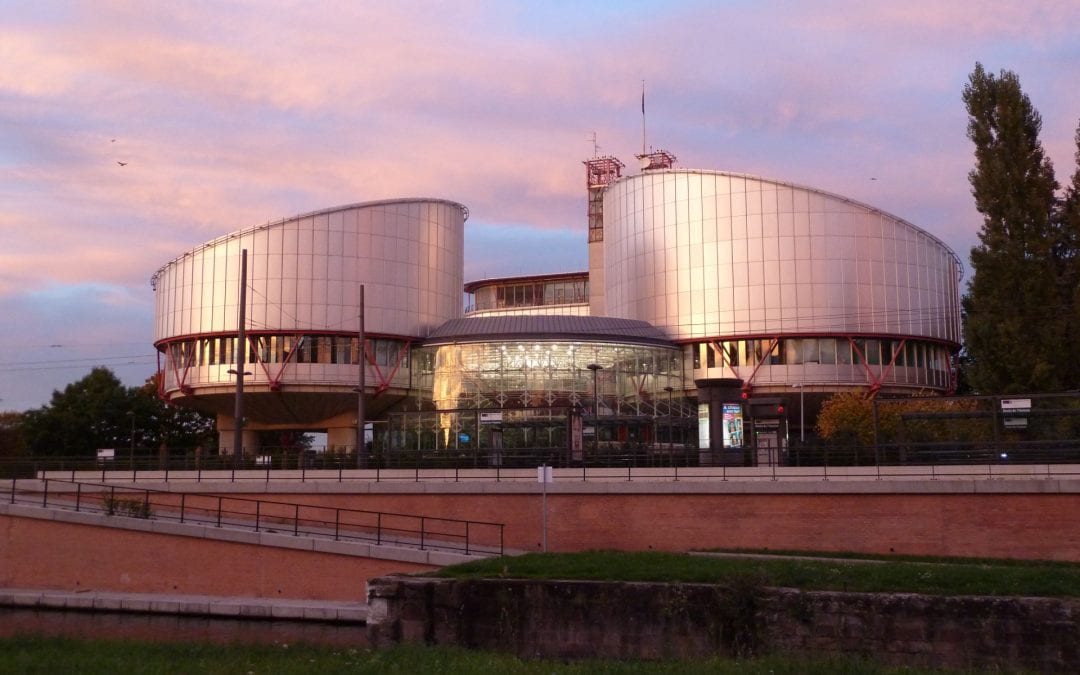The European Union should accede to the European Convention on Human Rights (the “Convention”). Accession by the European Union (the “EU”)–whereby the EU would become a party to the Convention, would create a more coherent system of law. EU accession would further strengthen the protection of human rights in Europe. Currently, the European Court of Justice and the European Court of Human Rights–which interprets the Convention– have similar jurisdiction, but may reach different decisions when handling similar matters , and these decisions are binding upon their respective member states. Theoretically, a member state that is subject to decisions of the European Court of Justice and the European Court of Human Rights could implement an EU law that is inconsistent with the Convention, thereby violating international law. Under the current structure, individuals are unable to challenge EU laws in the same way that individuals are currently able to challenge national laws. The EU acceding to the Convention would allow for individuals to challenge EU laws infringing on human rights through the European Court of Human Rights. Accession would mitigate this concern, and ensure “harmonious development of the case-law of the European Court of Justice and the European Court of Human Rights in human rights matters.”
The Convention and The Courts
The European Court of Human Rights is a regional human rights court based in Strasbourg, France established to enforce the European Convention on Human Rights, an international human rights treaty which came into force on September 3, 1953. The European Court of Human Rights has jurisdiction over cases submitted by individuals and states concerning violations of the Convention and issues binding decisions. The members of the Convention and the European Court of Human Rights are the member states of the Council of Europe which is distinct from the European Union—the Council of Europe has 46 member states while the EU only has 27 member states (thus, the Council of Europe incorporates EU states). The EU, as an entity, is not a party to the Convention and is thus not a member of the European Court of Human Rights.
The European Court of Justice is the supreme court of the EU in matters of EU law, not national or domestic laws. The European Court of Justice ensures European Union laws are applied consistently throughout all member states and settles legal disputes between governments and European Union institutions. Individuals, companies, and organizations can use the European Court of Justice to allege that an EU institution has infringed their rights.
While the Convention (and the European Court of Human Rights) and the European Court of Justice are part of two distinct legal systems, the Convention “lies behind many of the general principles of EU law and its provisions have been used as a basis for the EU’s Charter of Fundamental Rights.” The European Union is not directly bound by the Convention. However, the European Court of Justice regularly refers to the Convention and the European Court of Human Rights. To clarify, the Convention is not binding on the EU as an entity; however, the Convention is binding upon the individual member states that make up the EU in their individual capacities because they are member states of the Council of Europe and thus parties to the Convention. EU member states must therefore conform to the Convention when implementing EU law domestically; though, these obligations could conflict. This relationship can create confusion, for both national legislatures and citizens.
Accession
Since 2009, with the entry into force of the Lisbon Treaty, which altered the regulations of the EU, the EU now has the ability and obligation to accede to the Convention. Between 2010 and 2013, the European Union and Council of Europe member states negotiated the European Union’s accession. Indeed, in December 2014, the European Court of Justice determined that the European Union could not accede to the Convention under the Agreement because it was incompatible with EU law. As of late 2019, the EU indicated its readiness to resume negotiations to accede to the Convention. Most recently, parties met to discuss EU accession in its 12th negotiation meeting from December 7 until December 10, 2021 with plans to meet again in March 2022. Hopefully, these negotiations lead to a new agreement which the European Court of Justice would finally allow for the European Union’s accession to the European Convention on Human Rights. EU accession would provide greater human rights protections for individuals in Europe. Clarity on the law is necessary and can only be achieved with harmony between the legal structures in Europe–which is likely to become particularly important as tensions in Europe escalate.
Author Biography: Shanni Alon is the Deputy Moderator-in-Chief of the International Law Society’s International Law and Policy Brief (ILPB) and a J.D. candidate at The George Washington University Law School. She has a bachelor’s degree in political science with a minor in international affairs from The George Washington University.

